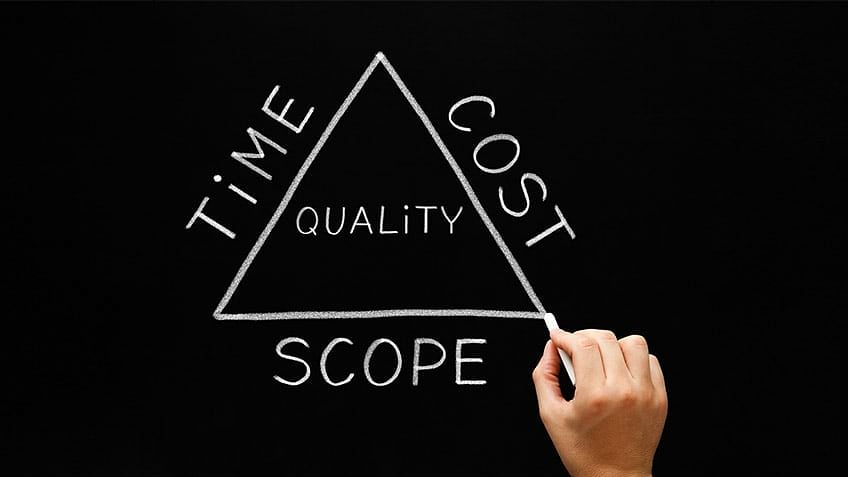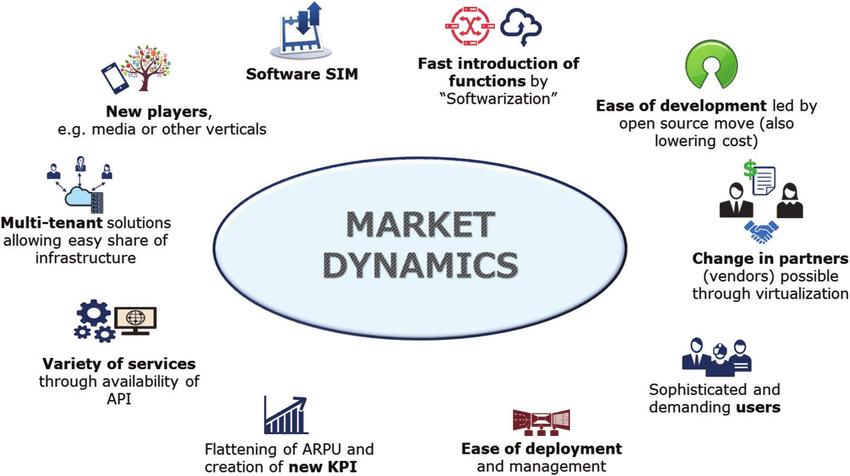The Hidden Truths: Unveiling the Limitations of Marketing Research
Marketing research is a powerful tool that guides businesses in understanding their customers and making informed decisions. However, despite its apparent accuracy, marketing research is not without its limitations and challenges.
In this article, we delve into the lesser-known aspects of marketing research to shed light on its boundaries and complexities. Join us on this journey as we uncover the hidden truths behind data collection, sample sizes, biases, and other crucial factors that influence the accuracy and reliability of marketing research. By understanding these limitations, marketers can navigate the ever-evolving landscape with confidence and ensure their strategies are built on a solid foundation of knowledge. Get ready to unravel the intricacies of marketing research and empower your decision-making process with valuable insights.
What is Marketing Research?
Marketing research can be defined as the systematic process of collecting, analyzing, and interpreting data to gain insights into consumer behavior, market trends, and competitive landscapes. It involves the use of various research methodologies, such as surveys, focus groups, and data analysis, to gather information that aids businesses in making informed marketing decisions.
Importance of Marketing Research in Decision-Making
Marketing research plays a crucial role in decision-making for businesses of all sizes. Here are a few key reasons why it is highly valued:
- Understanding Consumer Needs: By conducting research, businesses can gain a deep understanding of their target audience’s preferences, needs, and pain points. This knowledge allows them to tailor their products, services, and marketing strategies to effectively meet customer demands.
- Identifying Market Opportunities: Through comprehensive market research, businesses can identify untapped market segments, emerging trends, and potential opportunities. This information enables them to develop innovative products and strategies to stay ahead of the competition.
- Minimizing Risk: Marketing research helps minimize risks associated with new product launches, marketing campaigns, or market expansions. By gathering data and insights, businesses can make more informed decisions, reducing the chances of costly mistakes.
- Enhancing Marketing Effectiveness: Research provides valuable insights into the effectiveness of marketing efforts. By evaluating consumer responses and measuring the impact of marketing campaigns, businesses can optimize their strategies to maximize results and return on investment.
Top 5 Limitations of Marketing Research
While marketing research is undeniably valuable, it is essential to acknowledge and address its limitations. In the following sections, we will explore the various challenges researchers encounter during the marketing research process. We will delve into methodological limitations, time and cost constraints, human biases, changing market dynamics, and ethical considerations. By understanding these limitations, businesses can approach marketing research with a more nuanced perspective, making informed decisions based on a holistic understanding of its strengths and weaknesses.
Now that we have established the foundation, let’s dive deeper into the first section: Methodological Limitations.
1: Methodological Limitations
In the realm of marketing research, methodological limitations pose significant challenges that researchers must navigate. These limitations can impact the quality and reliability of the insights gained. Let’s explore some of the key methodological limitations in marketing research.
A. Sampling Limitations
Sampling plays a crucial role in marketing research, as it involves selecting a subset of individuals or entities from a larger population. However, several limitations can arise during the sampling process:
- Non-representative samples: Obtaining a representative sample that accurately reflects the target population can be challenging. Factors such as self-selection bias or limited access to certain segments can result in skewed or unrepresentative samples.
- Sample size issues: The size of the sample affects the accuracy and generalizability of research findings. Insufficient sample sizes can lead to inadequate statistical power or unreliable results.
- Sampling bias: Even with a representative sample, sampling bias can occur when certain characteristics or groups are over- or under-represented. This bias can distort research findings and compromise their validity.
B. Data Collection Limitations
Collecting accurate and reliable data is essential for meaningful marketing research. However, several limitations can hinder the data collection process:
- Self-reporting bias: When individuals provide information about their own behavior, preferences, or opinions, they may be influenced by social desirability bias or memory limitations. This bias can lead to inaccuracies or distorted data.
- Social desirability bias: Respondents may provide socially desirable answers instead of expressing their true opinions or behaviors, leading to biased data.
- Data validity and reliability: Ensuring data validity and reliability is crucial for drawing accurate conclusions. Challenges such as measurement errors, respondent misunderstanding of questions, or inconsistent data collection techniques can compromise data quality.
C. Research Design Limitations
The design of marketing research studies can also present limitations that impact the validity and applicability of the findings:
- Lack of control: In real-world marketing research, researchers often face limitations in controlling external factors that may influence the outcomes. This lack of control can introduce confounding variables, making it challenging to establish cause-and-effect relationships.
- Inability to establish causality: Marketing research often focuses on identifying associations and correlations rather than establishing causality. While research can reveal relationships between variables, it is essential to interpret findings cautiously to avoid making unwarranted causal claims.
- External validity challenges: The extent to which research findings can be generalized to real-world situations is known as external validity. Limitations in sample representativeness, research context, or research settings may restrict the generalizability of the findings.
By understanding and addressing these methodological limitations, marketing researchers can enhance the rigor and reliability of their studies. In the next section, we will explore another facet of limitations in marketing research: Time and Cost Constraints.
2: Time and Cost Constraints

In the realm of marketing research, time and cost constraints present significant challenges that researchers must navigate. These constraints can impact the quality, comprehensiveness, and timeliness of research efforts. Let’s explore the specific limitations posed by time and cost factors.
A. Time Constraints
Time limitations can exert pressure on the marketing research process, potentially affecting the depth and accuracy of the insights gained. Some key limitations related to time constraints include:
- Impact of time limitations on research quality: When researchers face tight deadlines, there may be limited time available to gather data, conduct a thorough analysis, and ensure comprehensive insights. The rushed nature of the research process can compromise the overall quality of the research outcomes.
- Rushed decision-making based on incomplete data: Time constraints may force organizations to make decisions based on partial or preliminary data. Incomplete data may lead to suboptimal decision-making, as critical insights might be missed or overlooked.
B. Cost Constraints
Budget limitations can significantly influence the scope and execution of marketing research efforts. The availability of financial resources can impact the extent to which organizations can invest in research. Here are two key limitations related to cost constraints:
- Budget limitations and their effect on research scope: Conducting extensive marketing research can be expensive. Organizations with limited budgets may not have the resources to conduct large-scale surveys, collect primary data, or engage specialist market research agencies. Consequently, they may be compelled to rely on cheaper alternatives, such as secondary data sources, which may not provide the same level of accuracy or specificity.
- Trade-offs between quality and affordability: Cost constraints often require organizations to make trade-offs between research quality and affordability. Investing in higher-quality data collection methods, ensuring representative samples, and employing skilled interviewers come with additional costs. However, such investments are essential to avoid poor decision-making and costly mistakes.
By recognizing the limitations imposed by time and cost constraints, marketing researchers can strive to strike a balance between resource limitations and the need for accurate and reliable insights. In the next section, we will explore another facet of limitations in marketing research: Human Factors and Biases.
3: Human Factors and Biases

Human factors and biases can significantly impact the accuracy and reliability of marketing research. Researchers must be aware of these influences to ensure the validity of their findings. Let’s explore the key human factors and biases that can affect marketing research.
A. Researcher Bias
Researchers bring their own beliefs, opinions, and perspectives into the research process. These biases can influence research outcomes and compromise objectivity. Here are two common researcher biases:
- Personal beliefs and opinions influencing research outcomes: Researchers may unintentionally project their own beliefs, preferences, or expectations onto the research process. This bias can influence study design, data interpretation, and the conclusions drawn from the findings.
- Confirmation bias and selective perception: Researchers may have a tendency to seek, interpret, or prioritize information that confirms their preconceived notions or hypotheses. This bias can lead to the exclusion or downplaying of contradictory evidence, resulting in skewed findings.
B. Consumer Bias
Consumer biases refer to the tendencies and limitations of individuals participating in marketing research studies. These biases can affect the accuracy and reliability of the data collected. Here are two common consumer biases:
- Misinterpretation of survey questions: Respondents may misinterpret survey questions, leading to inaccurate or unreliable responses. Poorly worded questions, complex language, or ambiguity can contribute to this bias.
- Inaccurate recall and memory biases: Respondents’ ability to recall past experiences, preferences, or behaviors may be imperfect. Memory biases, such as selective memory or recall errors, can introduce inaccuracies in the data collected.
C. Response Bias
Response bias refers to systematic errors in respondents’ answers, often influenced by social desirability or other external factors. These biases can impact the validity of research findings. Here are two common response biases:
- Social desirability bias: Respondents may provide answers that they believe align with social norms or expectations, rather than their true beliefs or behaviors. This bias can lead to over-reporting socially desirable behaviors or under-reporting socially undesirable ones.
- Respondent fatigue and satisficing: Lengthy surveys or repeated questioning can lead to respondent fatigue, where participants become less engaged or provide less thoughtful responses. Satisficing occurs when respondents opt for quick and easy answers rather than investing effort in providing accurate or detailed responses.
By acknowledging and accounting for these human factors and biases, marketing researchers can employ strategies to mitigate their impact and improve the quality and reliability of their research. In the next section, we will explore another facet of limitations in marketing research: Changing Market Dynamics.
4: Changing Market Dynamics

Marketing research operates in a dynamic landscape where market conditions, consumer behavior, and technology continuously evolve. These changing market dynamics present unique challenges for researchers. Let’s explore two key aspects of changing market dynamics: evolving consumer behavior and technological advancements.
A. Evolving Consumer Behavior
Consumer behavior is influenced by various factors, and understanding and predicting consumer preferences can be a complex task. Here are two limitations arising from evolving consumer behavior:
- Difficulty in predicting consumer preferences: Consumer preferences can be elusive and constantly evolving. Market researchers may face challenges in accurately predicting and understanding the ever-changing tastes, preferences, and needs of consumers.
- Rapidly changing trends and fickle consumer attitudes: Market trends and consumer attitudes can shift quickly, influenced by various factors such as social media, cultural changes, and emerging technologies. This dynamic nature of consumer behavior poses challenges in keeping up with the latest trends and adapting research strategies accordingly.
B. Technological Advancements
Technological advancements continually shape the marketing landscape and introduce new possibilities for research. However, they also present unique challenges. Here are two limitations related to technological advancements:
- Challenges of adapting research methodologies to new technologies: Emerging technologies, such as artificial intelligence, big data analytics, and virtual reality, offer exciting opportunities for marketing research. However, incorporating these technologies into research methodologies requires additional expertise, resources, and careful adaptation to ensure their effectiveness and relevance.
- Privacy concerns and data collection limitations: As technology advances, privacy concerns become more prominent. Stricter data protection regulations and growing consumer privacy concerns may limit the types and amount of data that can be collected, impacting the scope and depth of marketing research. Researchers must navigate these limitations while ensuring ethical and legal compliance.
By recognizing the impact of changing market dynamics on marketing research, researchers can adapt their strategies and methodologies to effectively capture consumer insights in a rapidly evolving landscape. In the next section, we will explore another facet of limitations in marketing research: Ethical Considerations.
5: Ethical Considerations

Ethical considerations play a crucial role in marketing research, ensuring that the rights and well-being of individuals are respected. Let’s delve into two key ethical considerations that researchers must address: privacy and data protection, as well as manipulation and exploitation.
A. Privacy and Data Protection
Maintaining privacy and protecting personal data are essential ethical obligations in marketing research. Here are two important aspects related to privacy and data protection:
- Data security risks and breaches: The collection, storage, and handling of personal data pose security risks. Researchers must implement robust security measures to safeguard data from unauthorized access, breaches, or misuse. Protecting data confidentiality and integrity is essential to maintain trust with participants and comply with data protection regulations.
- Consent and transparency in data collection: Researchers must ensure that individuals participating in research studies provide informed consent. Participants should be fully aware of the purpose, methods, and potential uses of their data. Transparency in data collection helps build trust and allows individuals to make informed decisions about their participation.
B. Manipulation and Exploitation
Marketing research must adhere to ethical standards to avoid manipulation and exploitation. Here are two important considerations related to this aspect:
- Ethical implications of targeted marketing and persuasive techniques: Targeted marketing relies on leveraging consumer data to personalize advertisements and messages. However, ethical concerns arise when individuals are subjected to manipulative or deceptive techniques that exploit their vulnerabilities. Researchers should ensure that targeted marketing practices uphold ethical principles and respect consumer autonomy.
- Balancing business interests with consumer well-being: Ethical marketing research strives to strike a balance between business objectives and consumer well-being. Researchers should avoid practices that prioritize profits at the expense of consumer welfare. Responsible decision-making and ethical frameworks help guide researchers in ensuring that marketing efforts are fair, transparent, and beneficial to both businesses and consumers.
By addressing privacy and data protection concerns, as well as recognizing the ethical implications of marketing practices, researchers can uphold the integrity of their work and promote ethical conduct within the field of marketing research. In the final section, we will summarize the key limitations discussed throughout this article and emphasize the importance of navigating these constraints to maximize the benefits of marketing research.
Conclusion
Marketing research is a valuable tool for businesses, but it is not without limitations. Budgetary and time constraints, data reliability, and legal and ethical considerations can impact the effectiveness of research. However, businesses can overcome these limitations by strategic resource allocation, investing in expertise, ensuring data quality and validity, and maintaining ethical standards. By addressing these challenges head-on, businesses can leverage the power of marketing research to make informed decisions and gain a competitive edge in the market.
